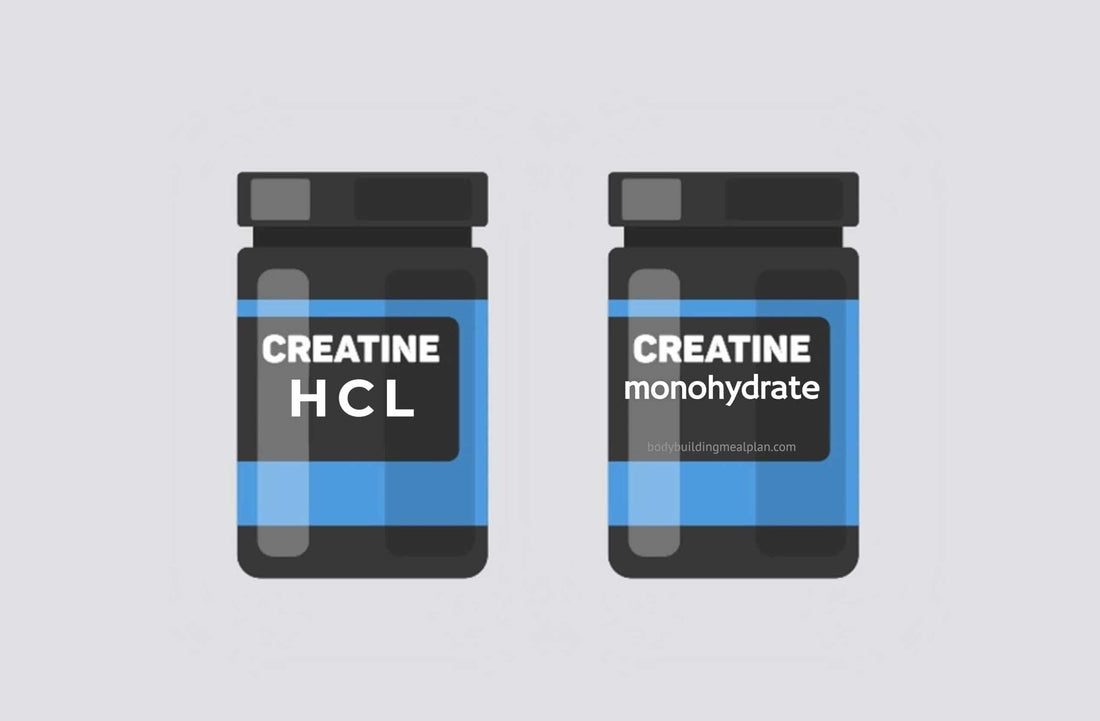Creatine is a popular supplement among athletes and bodybuilders, and it has been shown to be effective in improving performance and increasing muscle strength and size. There are several forms of creatine on the market, including creatine monohydrate and creatine hydrochloride (HCL). While both forms of creatine have been shown to be effective, there are some key differences between the two that are worth considering when deciding which one is right for you.
Creatine monohydrate is the most extensively studied form of creatine, and it is widely considered to be the most effective. It is also the most cost-effective form of creatine, making it a popular choice for many athletes and bodybuilders. Creatine monohydrate works by increasing the body's stores of phosphocreatine, which is a molecule that helps to produce ATP (adenosine triphosphate), the main energy source for the body's cells. This can help to improve performance during high-intensity exercise and boost muscle strength and size.
There are several mechanisms by which creatine monohydrate is thought to improve athletic performance. First, it can help to increase the availability of ATP, which is the primary energy source for muscle contractions. By increasing ATP stores, creatine monohydrate can help to improve muscle function and power output. In addition, creatine monohydrate has been shown to increase muscle fiber size and improve muscle strength, which can lead to improved performance in activities such as weightlifting and sprinting.
Creatine monohydrate has been extensively studied, and the results of these studies have consistently shown that it is an effective supplement for improving athletic performance. In a review of the literature, researchers found that creatine monohydrate was effective in improving muscle strength, power output, and muscle size in a variety of populations, including young and older adults, athletes, and individuals with certain medical conditions.
Creatine HCL is a newer form of creatine that has gained popularity in recent years. It is made by combining creatine with hydrochloric acid, which is believed to make it more soluble and easier for the body to absorb. This means that you may be able to take smaller doses of creatine HCL and still get the same benefits as you would with larger doses of creatine monohydrate. However, there is limited research on the effectiveness of creatine HCL compared to creatine monohydrate, and it is generally considered to be less well-studied.
One study that compared the effectiveness of creatine monohydrate and creatine HCL found that both forms of creatine were equally effective in increasing muscle strength and power output. However, the study was relatively small and had a number of limitations, so it is difficult to draw definitive conclusions from it. More research is needed to determine the effectiveness of creatine HCL compared to creatine monohydrate.
So, which form of creatine is best for sports supplementation? Ultimately, the choice between creatine monohydrate and creatine HCL comes down to personal preference. If you're looking for a well-studied, cost-effective option, creatine monohydrate may be the way to go. It has been extensively studied and has consistently been shown to be effective in improving athletic performance. On the other hand, if you're interested in trying a newer, potentially more easily absorbed form of creatine, creatine HCL may be worth considering. However, it is important to note that there is limited research on the effectiveness of creatine HCL compared to creatine monohydrate, and it is generally considered to be less well-studied. Hence, we at OSOAA stick to Creapure (from Germany) and Creatine Monohydrate as compared to the newer trends which have less research and validation in real life for we believe in safe doses and safe tested products ONLY.
It's always a good idea to talk to a healthcare professional before starting any new supplement regimen, and they can help you determine the best option for your needs and goals. They can also help to ensure that the supplement you choose is safe and appropriate for you based on your unique health profile.

